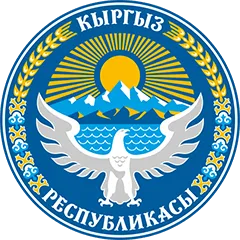
Will Kyrgyzstan Abide by the Rule of Law or Merely Follow in the Footsteps of Russia by Restricting Religious Freedom? - The test case of the Publications of Jehovah’s Witnesses
In Kyrgyzstan, the Pervomayskiy District Court is expected to rule on Thursday 2 December on a claim from the General Prosecutor’s office to ban 13 publications of Jehovah’s Witnesses as “extremist,” with the apparent aim of following in Russia’s footsteps and banning the Witnesses simply for their peaceful Christian worship.
On 23 November 2021, Jehovah’s Witnesses in Kyrgyzstan were informed that the General Prosecutor’s Office opened a civil case to declare 13 publications ‘extremist’. The GKNB (State Committee for National Security) and State Commission on Religious Affairs (SCRA) are parties to the case.
In an attempt to support the civil claim, the General Prosecutor’s Office extracted two ‘expert’ studies from an ongoing criminal case launched in 2019 against the National Religious Centre of Jehovah’s Witnesses for alleged ‘incitement to religious hatred’. This criminal case is still pending. Jehovah’s Witnesses learned of the existence of this criminal claim only earlier this year, when a raid was conducted by police forces and GKNB agents in March 2021. No evidence was found during the search and the confiscated items were returned upon the intervention of the international community. However, the GKNB refused to close the criminal case.
On Friday, November 25, late afternoon, Jehovah’s Witnesses were informed that the hearing in the civil case would take place at 10:00 a.m. on the following Monday. A hearing was held on Monday, November 29, at the Pervomayskiy District Court in Bishkek, before Judge Aydyraliyeva and adjourned until Thursday 2 December to allow consideration of the file, which Jehovah’s Witnesses only received after the first hearing.
The case documentation includes a disconcerting letter from the country’s GKNB (State Committee for National Security) dated 29 July 2021 to the Prosecutor General directing that “a prohibition of this religious organization’s materials (attached) be initiated and a possible ban on its activity in the Kyrgyz Republic be considered.” The GKNB’s recommendation was based on the fact that Jehovah’s Witnesses are banned in Russia, as well as in China, Iran, Iraq, Tajikistan, and Turkmenistan, but does not contain any factual evidence to justify its direction. This document is very revealing as to the ultimate goal pursued by some authorities. Will Kyrgyzstan pass the test of religious tolerance or fall into the trap of Russian stereotypes?
Jehovah’s Witnesses have appealed via letters to the president, stating in part: “The international community has repeatedly condemned Russia in the strongest terms for such violations of religious freedom and fundamental human rights. Therefore, we respectfully ask that your esteemed government urgently direct that the criminal case be terminated and the court application be removed.” This request would of course have to be applied to the civil case as well.
If the Witnesses’ publications are banned on Thursday, it will open the way to raids, arrests, and imprisonments—tactics that are hallmarks of the Russian government’s multi-year campaign of persecution against Jehovah’s Witnesses.
“What’s happening in Kyrgyzstan is the latest consequence of Russia’s ambitious foreign-policy strategy to export its systematic persecution of Jehovah’s Witnesses under the pretense of fighting extremism,” Jarrod Lopes, spokesman for Jehovah’s Witnesses, said. “Should Kyrgyzstan simply follow Russia’s model of repression—ban the Witnesses’ literature with the ultimate goal of banning their organization, it would definitely smear its international reputation. Jehovah’s Witnesses in Russia have 68 cases pending with the European Court of Human Rights. We are confident that the Court will hold Russia accountable for violating international human rights law putting other lands like Kyrgyzstan on notice that they will also face consequences if they continue to persecute Jehovah’s Witnesses for peacefully practicing their faith.”
Criticism of Extremism Legislation
Russia and Kyrgyzstan are party to the Shanghai Cooperation Organization. Its charter, which includes combating extremism, has been criticized by OSCE at the request of ODIHR. A report by the SOVA Center, Anti-Extremist Policies in Russia, Kazakhstan, the Kyrgyz Republic and Tajikistan, SOVA Center, declares: “Russian Extremist legislation has been and remains the model anti-extremist legislation for Central Asian countries….”
There are currently 5,266 Jehovah’s Witnesses in Kyrgyzstan out of a population of 6.5 million inhabitants. Jehovah’s Witnesses have been present in the country since 1956. Their national religious entity was registered in 1998.
Emblem of Kyrgyzstan from commons.wikimedia.org





